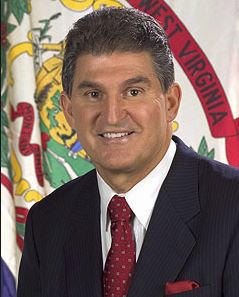“See that guy? He’s going to be governor one day.”
The words came from an elder statesman of the West Virginia Legislature, telling a young reporter, me, some 30 years ago, about the future of a freshman state representative named Joe Manchin.
And the words came true. Not only did young Manchin grow up and become governor, he’s now a U.S. senator. And today, the day the Democrat announced his compromise bipartisan solution with Republican Senator Pat Toomey of Pennsylvania to expand background checks for gun buyers, the young prodigy has come of age. He’s one of the best known politicians in the land. An example of how to work with the opposite party to get things done.
I’m not surprised at his deal-making abilities. As a young statehouse reporter for the Charleston Gazette, I was an eyewitness to his very first legislative deal. I was there to show readers the ugly process of making legislation, often referred to as “how the sausage is made.” Manchin was launching a long political career that peaked today with his bipartisan announcement in the nation’s capitol.
I still remember him hunched over on one knee by the desk of a state senator working his magic. I watched him carefully that night on March 12, 1983 as I tried to trace how last-minute legislative deals are cooked up and served. It’s ugly. And the rookie put on quite a show, and then like most politicians, he denied that what I just saw had ever happened.
In West Virginia, the final night of the annual state legislature is frantic. All the work, all the bills up for a vote, seem to happen in the final hour. It’s as if you played a game of checkers over several months, but in the end, you have to make 100 moves in less than an hour. Oh, and don’t forget the cheating.
The rule is that all bills must pass before midnight, or else all is lost. But that night in West Virginia – I’ll never forget this – someone stopped the clock at 11:59 p.m. and the work continued. Here’s what happened:
With 40 minutes to go before midnight (the real midnight) Manchin makes an about-face on an issue he ardently opposed. He suddenly – and, at first, no one knows why – supports the idea of a hospital rate-setting board that would put a cap on hospital rates throughout the state.
Previous to that, he had railed against the idea, calling it “a bureaucratic noose around the heads of hospitals.” But now, at 11:20 p.m. his signature suddenly appears on a conference report supporting the bill – and clearing it for passage. He won’t say why.
Another lawmaker, though, spills the beans. “We did some heavy duty negotiating,” he says about Manchin. For what? I don’t know. Not yet.
A jobs bill is supposed to come up next. The bill is designed to create jobs in a coal economy staggering under an early 1980s recession. But that bill would have to wait.
I overhear the Senate President telling his aides, “The next bill we will take is the physical therapists bill.”
This makes no sense. A physical therapists bill with only a half hour to go? A bill that would allow patients to see physical therapists without a doctor’s referral? This, in the final moments, in a state hurting for jobs?
Manchin hovers around the Senate clerk’s desk, watching. He should be on the other side of the state Capitol voting from his House chair, but something is bugging him. And it’s not unemployment.
Turns out Manchin is the nephew of a similarly named Joe Manchin, a physical therapist in Fairmount, W. Va. The PT bill is Manchin’s. Although for the entire session, senators had fought vigorously against the bill, everyone seems to be rolling over now.
Nine minutes ‘til midnight.
“PT bill! PT bill!” senators cry out.
I’m confused. Are they talking about the all-important property tax limitation bill, one that would save West Virginians hundreds of dollars on their property taxes? Naw. They have to get to the physical therapists bill.
Now with minutes to go, it’s becoming clear. Manchin changed his position on the hospital cost bill so he could grab this gift for his uncle and his uncle’s PT buddies.
Sen. Larry Tucker, who later would go to prison for taking a bribe from gambling lobbyists, tells me, “They’re paying Manchin off.” Not with cash, though, but with votes.
I ask Manchin point blank, “Why are they running your bill here right after hospital cost containment? Was there any kind of an arrangement?”
My tape recorder captures his answer: “No, no, no,” he says. “No, no, no.”
But the truth is yes, yes, yes. His bill passes.
The clock shows 11:59 p.m.
I look at my watch. It’s well after midnight.
Another political star is born, a star that shines ever so brightly these days as Manchin is cited as someone who can get things done.
And this is how it all began for U.S. Senator Joe Manchin and his deal-making skills.



